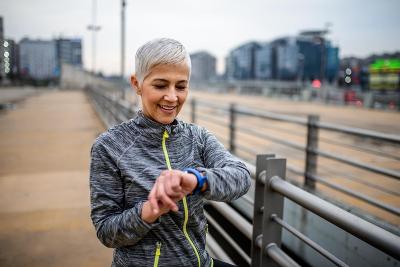
Clinical trials advance medicine, but the National Institutes of Health says that more than half of studies are unable to recruit or retain the necessary research participants, which can exacerbate health disparities. However, in recent years, digital technologies have helped trials become more accessible and inclusive. Clinical trials are moving out of traditional research facilities and into the everyday lives of participants. “Instead of asking participants to come to us, we’re going to them,” says David Harmon, M.D., a Mayo Clinic cardiology fellow. “We’re making it possible for people to participate in clinical trials without needing to travel outside their communities — often they can participate virtually from home.”
Conventional clinical trials are conducted by staff delivering experimental treatments in a hospital or other clinical research facility. The new wave in research, known as “pragmatic trials,” favors clinical trials embedded in real-world practice that adopt digital resources commonly used in patient care and apply them to virtual settings.
Researchers are finding innovative ways to use electronic health records and rapidly identify people who may be eligible for a trial. This approach shortens the time participants may need to wait before a trial can begin, increasing participant satisfaction. Researchers are also improving efficiency by tapping into electronic health records to track participant outcomes, reducing the need for trial-related follow-up appointments or other contacts between study staff and participants beyond what is needed for patient care. The goal is to create a “learning health system” using research to inform real-world decisions and transform clinical practice to benefit patients.
One thing that’s always been challenging to evaluate in clinical trials is how a treatment may work in everyday life outside a hospital or clinic. Now, digital tools make that possible and provide a “digital window” into real-world health.
The average person may already have everything they need to participate in a clinical trial in the palm of their hand or strapped to their wrist. The researchers note that 85% of U.S. citizens own a smartphone, and 20% own a smartwatch or other wearable tech. Using these tools, people can participate in many clinical trial activities remotely — from enrolling in and consenting to a study to gathering and submitting study data — without traveling to a research facility or interrupting their daily lives.
When needed, researchers may also provide study-owned devices for participants to use and coordinate convenient ways for people to participate by visiting local health clinics, libraries or other community locations. These tactics help overcome barriers that might prevent people from participating in a trial.
The researchers acknowledge the limitations of using digital technology in clinical trials. While pragmatic design and digital innovation help scientists understand the clinical impact and real-world effectiveness of clinical trials, it’s not a “one-size-Fits-All” approach.
Hybrid trials combine elements of conventional design, such as in-person assessment, with digital elements, such as a mobile app for data collection. This flexibility can also be built into trials, allowing participants choices in how they interact with study staff or complete study requirements.
“These digital solutions have enabled scientists to enhance inclusivity in clinical trials at all levels, from the research topics chosen to the geographic regions where research is conducted to the background of the people leading and participating in studies,” says Dr. Xiaoxi Yao Ph.D. a cardiology-focused health services researcher at Mayo Clinic “This creates a more robust learning health system that aims to generate evidence and cures meaningful to all people.”
Envision yourself working for a global leader in an industry fueled by innovation and growth. Mayo Clinic has opportunities for you. Join us at Florida’s No. 1 hospital by visiting https://jobs.mayoclinic.org/. For more information on health care topics please visit Mayo Clinic Jacksonville at mayoclinic.org.

Be the first to comment